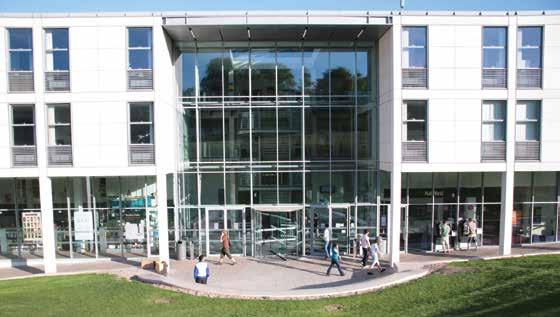
3 minute read
Emerging issues on building operations
emerging issues in building operations
Building Automation / Energy Management / Sustainability
Buildings today employ a multitude of technologies to automate their systems and maximize the performance of their buildings. However, with such a substantial investment in buildings, has there been a corresponding investment in the people to manage these buildings?
As boards of education bring on new schools with automated technologies, the demands placed on their staff to maximize the performance of these buildings requires individuals who have received training beyond what operational staff have historically received. In addition, those accountable for these buildings must now instill a culture of ongoing education in order for their buildings to achieve the operational goals set out by the systems they employ.
Studies today show that the technical knowledge of staff will be short lived: as individuals master one skill set, new knowledge requirements quickly replace it. In fact, the reality is that just when we start to understand one piece of software, a new one is available. As buildings evolve and use more and more technology, building operators will be faced with this reality as well.
With an aging workforce, building operators are transitioning from skills dealing with aging technology to those that employ new technology. However, there is still the need to have a foundational knowledge of the old systems in order to maintain buildings with older systems in place.
Tapping into associations that focus on professional development can be a way boards of education can instill a culture of professional development and learning for those assigned the role of operating their buildings at max capacity.
BOMI Canada is one such organization, focusing on training building operators, facility managers and property managers. Within BOMI’s Systems Maintenance Technician designation program, there are certificate programs focusing on general management of buildings, as well as other programs specific to energy/sustainability initiatives (BEC).
Some of the key trends identified by the Green Building Council for 2018 included:
• Going retro(fit) — updating existing buildings and improving their energy efficiency will help Canada meet its long-term goal of reducing greenhouse gas (GHG) emissions.
• Recognizing the value of data — analyzing the data available on building operations will help identify areas for improvement and optimization.
In recognizing these trends and adopting a culture of ongoing training, building operators will play an influential role in achieving the benchmarks required for their buildings. For example, courses such as BOMI’s Energy Management and Controls assists building operators in advancing their knowledge in several key areas. They are able to better:
• Apply an energy management plan to their building’s systems
Facing page: Studies today show that the technical knowledge of staff will be short lived, as individuals master one skill set, new knowledge requirements quickly replace it.

Right: BOMI Canada focuses on training building operators, facility managers, and property managers.
• Evaluate new systems with a concentration on retrofitting
• Understand traditional and alternative energy systems
These types of courses will enable building operators to successfully respond to key operational trends that are emerging in building management as a result of the need for retrofitting older buildings. Additionally, they will be able to employ data management skills to maximize the performance of older systems, as well as newer ones.
As school boards and commercial buildings work to help Canada meet its international obligation to reduce its carbon footprint, there will be a greater need for trained individuals to manage the dayto-day operation of the buildings.
Change is already well underway and more is sure to follow. And, without a strong culture of education within building operations, our buildings will not be able to meet the demands that they will face in reducing their impact on the environment. n











